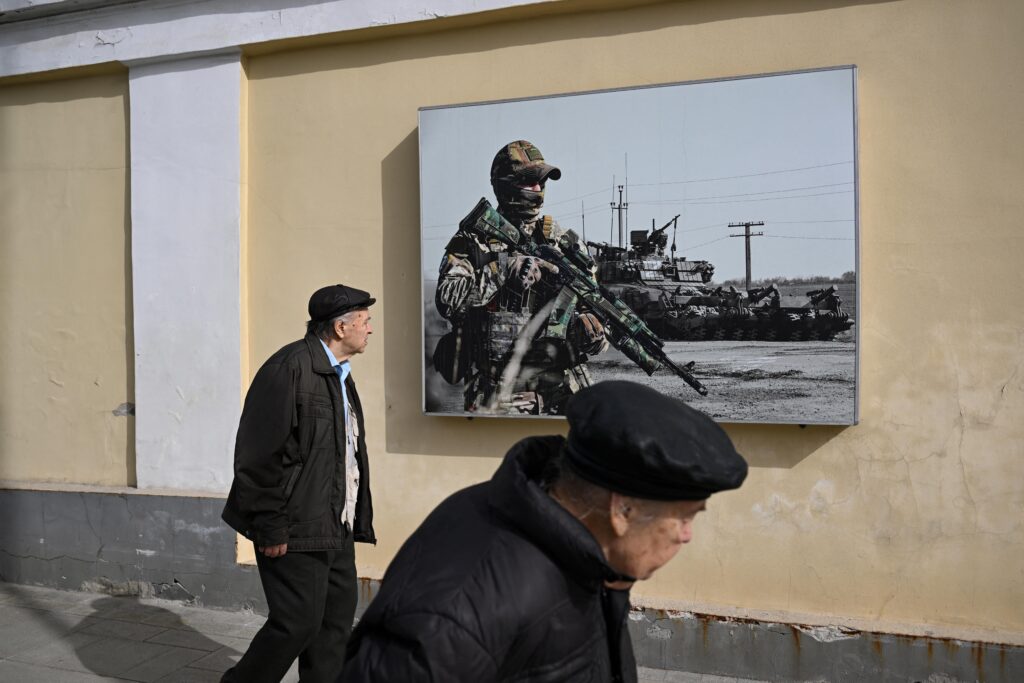- In March, Russia dealt with its highest-ever number of AWOL cases since the war began, Mediazona reported.
- Russian courts issued a daily average of 34 AWOL sentences in that month alone, per the outlet.
- Almost all of the cases in March were related to those conscripted in the September mobilization.
Russian courts assessed 684 absences without leave in March, the highest-ever monthly count since the war in Ukraine began, independent Russian media reported.
Citing public records, independent outlet Mediazona reported on April 12 that a daily average of 34 AWOL sentences were carried out in military courts that month.
Mediazona reported that almost all of the cases were related to men recruited in Russia's mobilization, which began in September 2022 and saw some 300,000 men conscripted to fight in Ukraine.
The independent report was cited in a UK Defence Ministry intelligence update on Wednesday.
"Russian soldiers, including those forcibly recruited during the September 2022 partial mobilization, are required to remain in military service indefinitely, with little prospect of release," the update said.
Men found guilty of going AWOL were typically handed suspended sentences to allow them to return to their units, some of which are on the front lines, Mediazona reported.
At least some of these AWOL cases played out over the last year, including the unauthorized absence of a contract soldier who returned home in May 2023 and was later diagnosed with a mental disorder, per Mediazona.
Russian courts have dealt with some 2,300 AWOL cases since the start of 2024, and about 7,400 total cases since Moscow invaded Ukraine in February 2022, according to Mediazona.
Moscow was the region with the most such trials, with 496 cases, per Mediazona.
The Russian Ministry of Defense did not immediately respond to a request for comment sent outside regular hours by Business Insider.
The Kremlin's partial mobilization in 2022 was deeply unpopular, sparking an exodus of affluent Russians and protests in Moscow.
Thousands of draftees were sent to combat units and were widely reported to have initially received little training and equipment. Some died in their first month of deployment.
Grueling conditions on the front line and heavy fighting in the summer of 2023 slammed Russian morale, with multiple reports and rumors of infighting, desertion, and malingering.
But Russia's all-out push to boost its numbers appears to be taking effect. Its army has grown by about 15% since the war in Ukraine started, according to an estimation on April 10 by US Army Gen. Christopher Cavoli, NATO's Supreme Allied Commander in Europe.
This spring, Russia is set to call up some 150,000 men for routine, statutory military service, which typically lasts about one year. These men are not legally obliged to fight outside the country.
Meanwhile, Ukraine has also struggled to replenish its hard-hit forces, with thousands of military-age men trying to flee the country or hide from Kyiv's military draft.
To shore up its manpower, Ukraine's parliament on April 2 lowered its draft age for males from 27 to 25. On Tuesday, the country's foreign ministry also announced that it was temporarily suspending issuing passports to Ukrainian military-age men abroad, requiring them to return home to renew their documents.
Russia has slowly been making gains in Ukrainian territory since the start of 2024, with Ukraine saying its troops are struggling without vital ammo and weapons previously supplied by NATO. After stalling in Congress for months, about $60 billion in US assistance to Ukraine was approved on Wednesday.
